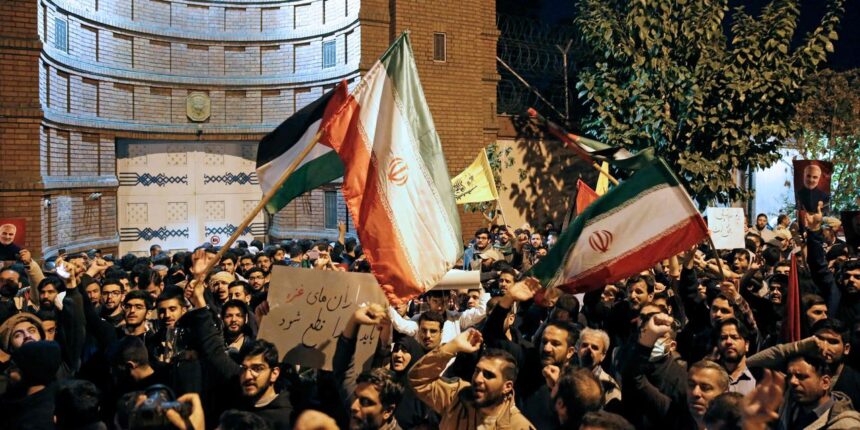Oil prices surged on Wednesday, following a deadly blast at a hospital in Gaza City that left hundreds dead, and ratcheted up regional tensions, with Iran reportedly calling for an embargo on selling oil to Israel.
Price action
-
West Texas Intermediate crude
CL00,
+3.16%
for November delivery
CL.1,
+3.16% CLX23,
+3.16%
rose $3.38, or 2.9%, to $89.59 a barrel. The contract settled flat at $86.66 a barrel on the New York Mercantile Exchange after losing 1.2% on Monday. -
December Brent crude
BRN00,
+3.01% BRNZ23,
+3.01%
the global benchmark, gained $2.86, or 3.1%, to $92.78 a barrel. On Tuesday, the contract gained 25 cents, or 0.3%, to $89.90 a barrel on ICE Futures Europe.
Market drivers
On Tuesday, an explosion tore through a Gaza City hospital filled with wounded and other Palestinians seeking shelter from ongoing war, with the death toll at 500 and rising, the Hamas-run Health Ministry said. Hamas has blamed the blast on the Israeli military, which in turn said the cause was a misfired rocket from a Gaza-based militant group.
As anger spread through Arab region, Jordan canceled a planned Arab summit with President Biden, who touched down in Israel on Wednesday. Jordan’s foreign minister Ayman Safadi told state-run television that the nearly two-week old war was “pushing the region to the brink.”
Read: Biden tells Netanyahu it appears ‘the other team’ caused Gaza hospital blast
Iran’s foreign minister, Hossein Amirabdollahian on Wednesday called for members of the Organization of Islamic Cooperation (OIC) to stop selling oil to Israel oil and expel its ambassadors, Reuters reported. The OIC was holding an emergency meeting in Jeddah on Wednesday.
The hospital explosion set off protests against U.S. and Israeli embassies and consulates late Tuesday and into early Wednesday across the region, in Jordan, Turkey, Tunisia, Lebanon, with protesters also gathering outside British and French embassies inside Iran, according to media reports.
Benjamin Picton, senior macro strategist at RaboResearch told clients in a note on Wednesday that following the tragedy, there’s a rising risk of “further escalation from Iran and Hezbollah, the former vowing a ‘harsh response,’ even including against the U.S., and the latter announcing a day of ‘unprecedented anger’ today.”
Picton said attention would turn to whether Iran and Hezbollah “make good on threats to open up a new front in the north.” And if Iran does get involved, that puts in play Rabo’s forecast of $100 a barrel oil before the year-end, which would ratchet up “further inflationary pressures from the supply side of the economy (and higher rates).”
Crude prices surged last week on fears that if Iran enters the conflict, the U.S. could increase enforcement of sanctions that would curb exports and further tighten global supplies. Jay Hatfield, chief executive officer at Infrastructure Capital Management, said Iran’s involvement would put its 3 million barrels of daily oil production at risk.
Read:70% chance Israel-Hamas war spreads beyond Gaza, threatening oil, strategist warns
Myra P. Saefong and Williams Watts contributed to this report








